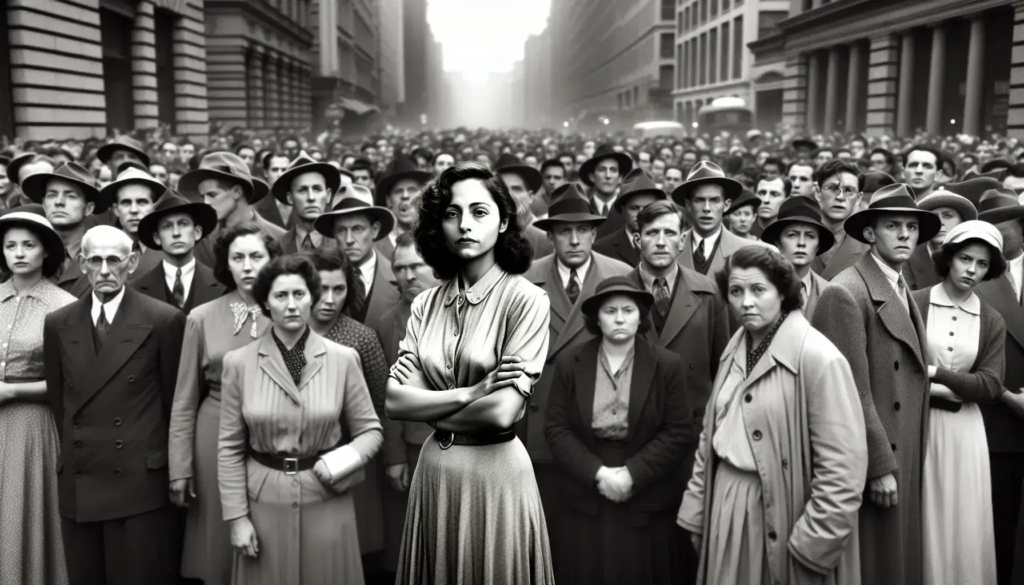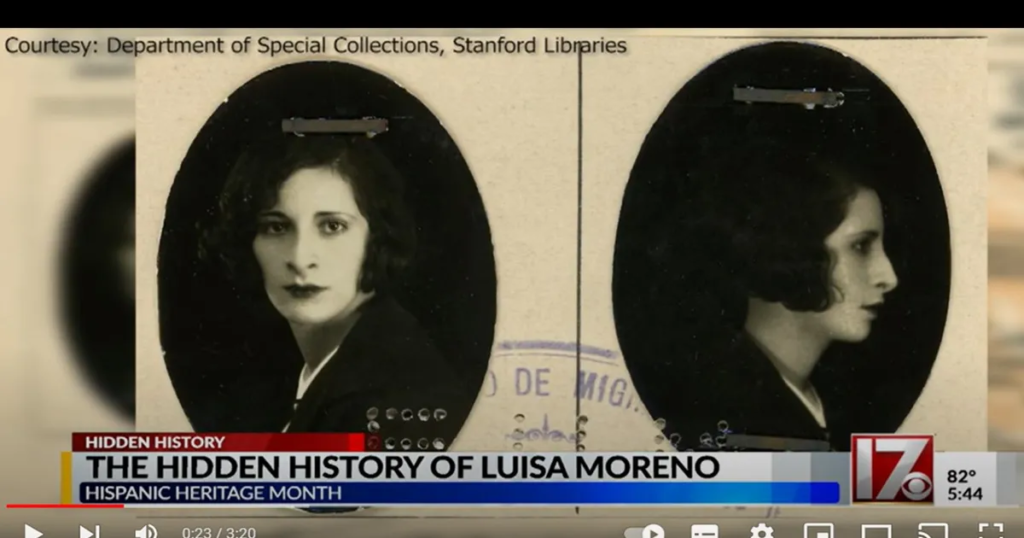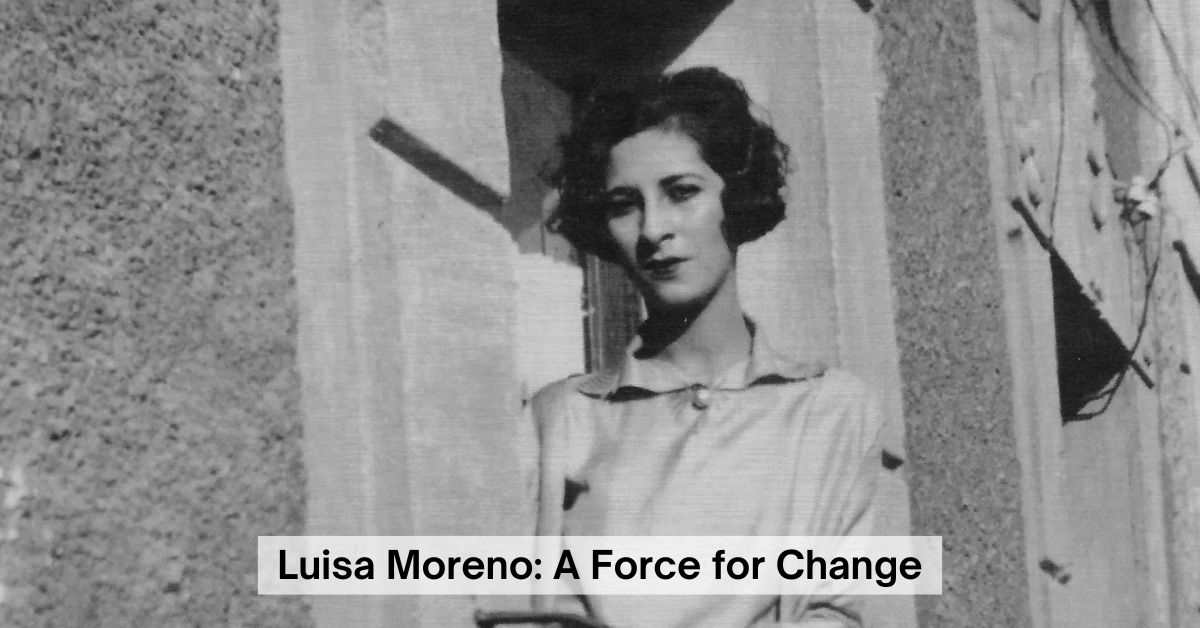In the annals of American history, the voices ofhttps://www.britannica.com/topic/zodiac those who fought for social justice and civil rights resonate profoundly. Among these voices is Luisa Moreno, an influential Latina leader whose efforts during the early-to-mid 20th century left an indelible mark on labor rights and the broader civil rights movement. Her advocacy, courage, and relentless pursuit of equality have made her a notable figure in the struggle for social justice, particularly for Latino communities. Luisa Moreno
Early Life and Background
Luisa Moreno was born on December 9, 1907, in Guatemala City, Guatemala. Her early years were shaped by a keen awareness of social injustices and a profound empathy for the struggles of working-class people. Moreno’s family was not affluent, and she witnessed firsthand the challenges faced by the impoverished. This early exposure to socio-economic disparities fueled her lifelong commitment to social justice.

In her early twenties, Moreno moved to the United States, where she was exposed to the harsh realities faced by immigrant workers. Settling in New York https://www.britannica.com/biography/Luisa-Moreno City, she worked in various low-wage jobs and experienced the exploitation and discrimination that many immigrant workers faced. These experiences cemented her resolve to advocate for workers’ rights and equality.
Advocacy and Activism
Luisa Moreno’s activism began in earnest during the 1930s, a period marked by significant economic hardship due to the Great Depression. Her activism was rooted in her belief in the inherent dignity of every worker and her commitment to improving the conditions under which they labored. Moreno was a charismatic and effective organizer, able to mobilize diverse groups of workers around common causes.
One of her most notable achievements was her work with the Workers’ Alliance of America, where she played a crucial role in organizing and leading https://www.britannica.com/games/octordle/ strikes. Under her leadership, the organization successfully pushed for better wages, working conditions, and labor rights. Her efforts were not limited to any single ethnic group; she worked to unite workers across racial and ethnic lines, believing that solidarity was essential for achieving meaningful change.

In addition to her work with the Workers’ Alliance, Moreno was an active participant in the Congress of Industrial Organizations (CIO). The CIO was instrumental in advancing labor rights and was a key player in the broader labor movement of the time. Moreno’s involvement with the CIO further solidified her reputation as a formidable advocate for workers’ rights and equality. zodiac signs
Focus on Latino Rights
Despite her significant contributions to the labor movement, Luisa Moreno’s work extended beyond labor rights. She was deeply concerned with the specific issues faced by Latino communities in the United States. Recognizing that Latino workers often faced unique challenges, including language barriers and cultural discrimination, Moreno dedicated much https://www.britannica.com/quiz/browse of her activism to addressing these issues.

In 1938, Moreno helped to found the League of United Latin American Citizens (LULAC) in New York City. LULAC became one of the foremost organizations advocating for the rights of Latino Americans, focusing on issues such as education, employment discrimination, and civil rights. Moreno’s leadership and vision were instrumental in shaping the organization’s early agenda and setting a course for future advocacy.
One of Moreno’s key contributions to LULAC was her emphasis on the importance of political engagement and civic participation. She believed that Latinos needed to assert their presence in American politics to effect change and protect their rights. Her advocacy for political involvement helped to lay the groundwork for future Latino political activism and representation.
Challenges and Controversies
Luisa Moreno’s activism was not without its challenges and controversies. Her involvement in labor strikes and her outspoken advocacy for workers’ rights often put her at odds with powerful industrial interests and government authorities. During the 1940s, the political climate became increasingly hostile to activists and organizers, and Moreno faced significant scrutiny from government agencies, including the FBI.

In 1950, Moreno faced deportation due to her involvement in leftist activities and her association with organizations that were deemed subversive by the U.S. government. Her deportation marked a significant setback for her activism and a harsh reminder of the challenges faced by those who stood up for social justice during times of political repression.
Despite these challenges, Moreno’s impact on the labor movement and Latino rights remained significant. Her contributions to the labor movement and her advocacy for Latino communities continue to be remembered and celebrated by those who recognize her as a pioneer in the struggle for social justice.
Legacy and Impact
Luisa Moreno’s legacy is multifaceted, encompassing her contributions to labor rights, Latino advocacy, and social justice. Her work has had a lasting impact on the labor movement, influencing subsequent generations of activists and organizers. Moreno’s emphasis on solidarity, political engagement, and the importance of addressing the specific needs of marginalized communities remains relevant today.

In recent years, there has been a renewed interest in Moreno’s life and work, as scholars and activists seek to highlight the contributions of women and people of color in the struggle for civil rights. Her story serves as a powerful reminder of the importance of diverse voices in the fight for social justice and the need for continued advocacy to address ongoing inequalities.
Conclusion
Luisa Moreno’s life and work represent a remarkable chapter in the history of social justice and civil rights in the United States. Her pioneering efforts in labor rights, her advocacy for Latino communities, and her unwavering commitment to equality have left a lasting legacy. As we reflect on her contributions, it is essential to recognize and honor the trailblazers like Moreno who have paved the way for progress and continue to inspire new generations of activists and advocates.
In remembering Luisa Moreno, we celebrate not only her achievements but also the enduring principles of justice, solidarity, and equality that she championed. Her story is a testament to the power of individual and collective action in the pursuit of a more just and equitable society.


